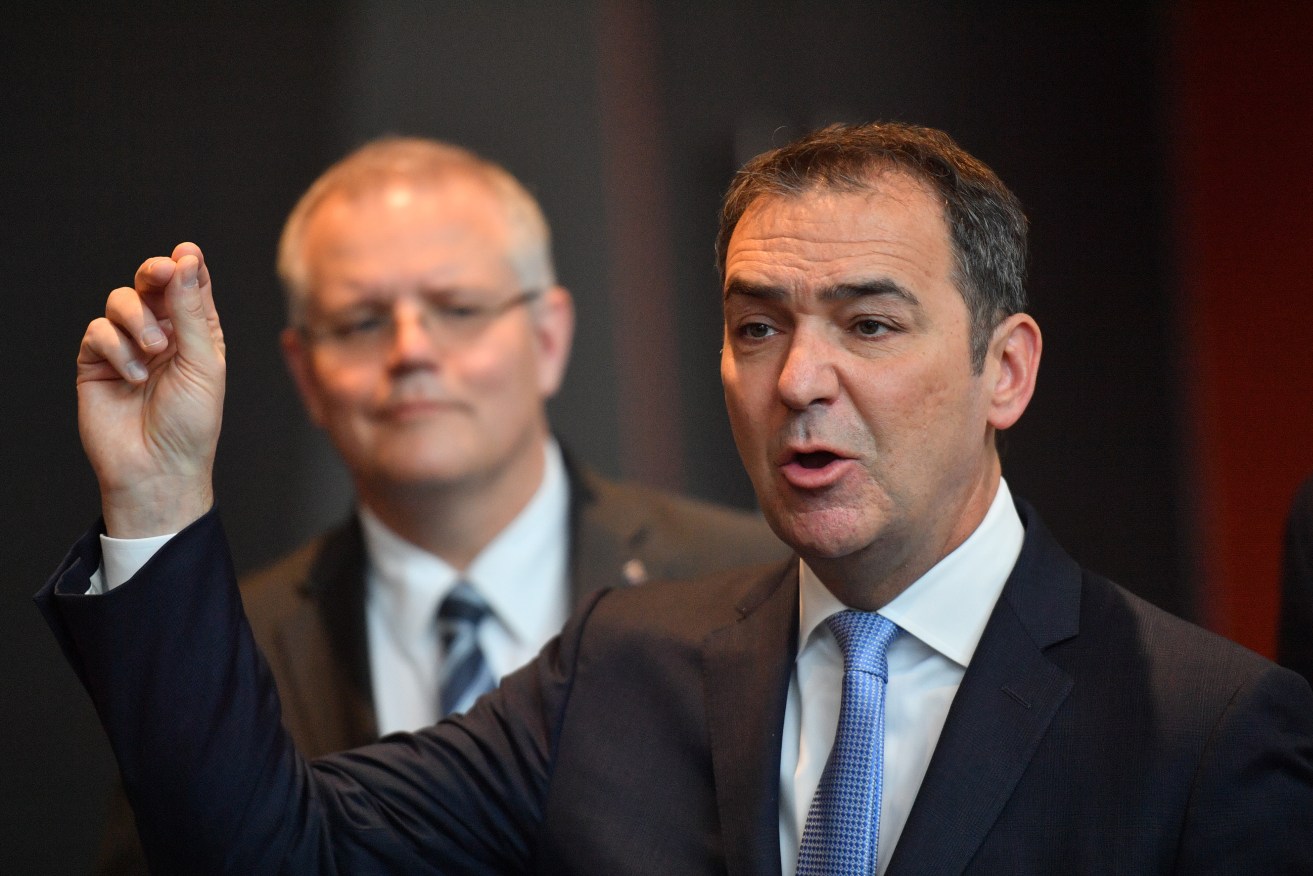Reform public service – but don’t blow it up, Marshall warned
A major public service shake-up should be carried out over three terms of Liberal rule rather than with an immediate “big bang”, the Marshall Government has been told.

Premier Steven Marshall at the weekend's SA Liberal Party AGM. Photo: David Mariuz / AAP
A key adviser to the Liberal Government has also briefed public service chiefs that their new ministers were “in a hurry to make a mark” – but afraid of “screwing up”.
Wayne Eagleson, who was chief of staff to former New Zealand Prime Ministers John Key and Bill English from 2008 until 2017, has been contracted by the Marshall administration- at more than $90,000 for five months of consultancy – to provide ongoing advice on public sector reform and the transition to government after 16 years in Opposition.
He has briefed ministers and public service bosses on the Government’s plans to “cap the size of the public sector and re-focus [its] priorities”, with notes on the presentation released under Freedom of Information.
Marshall has spoken previously about the cultural and economic parallels between South Australia and New Zealand and the political influence of the country’s two previous National leaders, with whom he has struck up friendships.

Marshall with former NZ PM John Key.
Eagleson visited SA for a series of strategy sessions and meetings in May, with notes taken by various senior bureaucrats and Eagleson’s own slideshow presentation released publicly after a request by Manager of Opposition Business Tom Koutsantonis.
In briefing notes for a Senior Management Council Strategy Session on May 8, Eagleson reflects on “the NZ experience”, drawing “some parallels” between that and the Marshall Government’s public service agenda.
He notes that in both cases, a “long term Labour Government loses office” and an “incoming conservative government seeks to cap the size of the public sector and re-focus priorities”.
He told public service leaders sector reform should be “done over three terms rather than a ‘big bang’”, with the development of Better Public Services Targets at its core.
Those targets, he said, were “hugely useful” in aligning the aims of Ministers and CEOs with “public expectations”.
He reiterated the pace of reform in relation to the Government’s first-term agenda, noting “it’s not a sprint”.
Eagleson noted a key challenge was balancing reform of the sector with service delivery, telling bureaucrats: “People are more interested in services that structure/form.”
He said that during major reform government agencies and officials “can become inward looking and worry about their jobs”.
Another parallel appeared to be the “economic agenda at the heart of the government” with a focus on “export led growth”.
Eagleson has briefed public service chiefs on the importance of cabinet committees in “supporting the successful implementation of the Government’s election platform… to co-ordinate effort and manage conflict”.
The strategy session included the heads of all the major public sector agencies, including then-acting Premier’s department chief Erma Ranieri. Other attendees included State Development CEO Mark Duffy, Education boss Rick Persse, Child Protection chief Cathy Taylor and SAPOL commissioner Grant Stevens, as well as cabinet office director Ruth Ambler.
It followed a series of private meetings in April between Eagleson and senior bureaucrats, at the request of cabinet secretary David Speirs.
Eagleson advised the bureaucrats “how [their] Ministers are feeling” as they entered government, noting the Liberal frontbenchers would be “excited, optimistic – but with a sense of trepidation”.
They are “in a hurry to make a mark – but with caution lest they screw up,” his notes say.
They want “to get on with it – but [are] not always clear about what levers to pull and when” and are “sometimes overwhelmed by the workload and expectations – with little time to reflect or plan”.
The new ministers, Eagleson told the session, are “used to treating the public service as part of the ‘opposition’ – [but] now they need them to succeed”.
“They haven’t needed to understand the role of the public service – now they are responsible to parliament for it,” he told them.
Eagleson also noted that in Opposition, the Liberals “had to work hard to gain media attention – now everything they do (good and bad) is news”.
He also warned ministers against being dismissive of the new Labor Opposition, telling them: “They know where the bodies are buried.”
Finally, he told the public service chiefs, “having finally become a Minister – [they are] desperate to stay there!”
Various notes suggest the stated aim is to produce a “strong, apolitical public service”, with Eagleson evidently advising the fledgling administration against the bull-at-a-gate approach that blighted Campbell Newman’s re-election prospects in Queensland.
Speaking of the Government’s “narrative and commitments”, Eagleson warns there is “no rush – wait until [you are] in office for a few months and understand what it is to be in government”.
He says “budget cuts are always difficult”, because “there is always a constituent for every dollar of government expenditure”.
A question that appears in various notes of the briefing asks “what does success look like?”, in relation to public sector reform and election commitments.
According to notes, Eagleson told the meeting that “not all commitments are created equal”, and implementation risks “must be identified clearly and managed carefully by CEs to ensure commitments are met”.
The gradual reform process in NZ followed a template whereby ministers identified key issues in their first term before introducing Better Public Services Targets over the subsequent four years.
“The NZ approach was for public sector reform to occur over a longer term rather than big bang,” one bureaucrat’s meeting notes reiterate.
Taxpayers were billed $11,580 for Eagleson’s travel, accommodation and expenses for the visit. He is currently paid $NZ2400 a day (around $A2168) by the Government, plus expenses. According to contract details published online, he is on a five-month contract totalling $91,500 – although that contract commenced in June, after the briefings documented in the FOI material.




